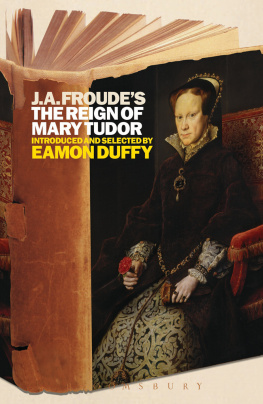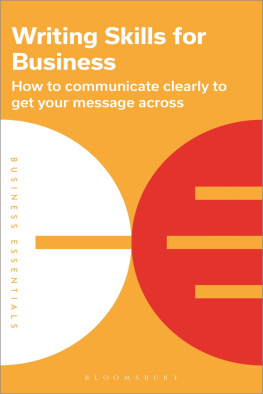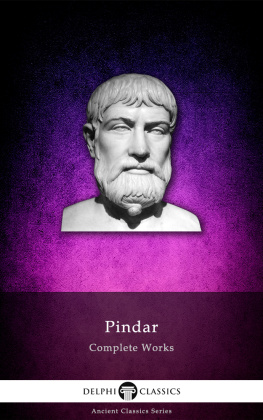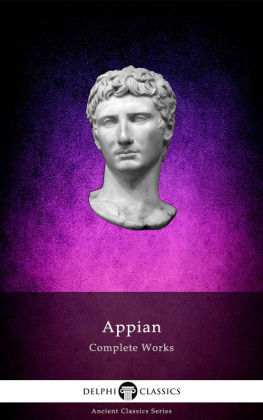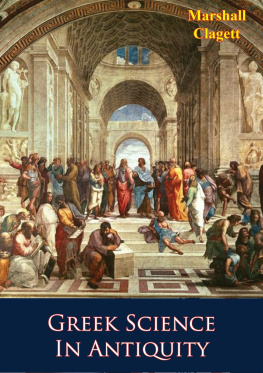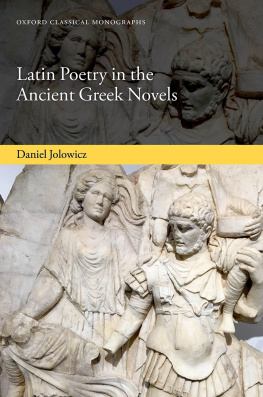EXPURGATING THE CLASSICS
EXPURGATING THE CLASSICS
Editing Out in Greek and Latin
Edited by
Stephen Harrison
and Christopher Stray

Bloomsbury Academic
An imprint of Bloomsbury Publishing Plc
50 Bedford Square | 1385 Broadway |
London | New York |
WC1B 3DP | NY 10018 |
UK | USA |
www.bloomsbury.com
Bloomsbury is a registered trade mark of Bloomsbury Publishing Plc
First published in 2012 by Bristol Classical Press
Paperback Edition first published 2014 by Bloomsbury Academic
Introduction and editorial arrangement Stephen Harrison and Christopher Stray 2012
Stephen Harrison and Christopher Stray have asserted their right under the Copyright,
Designs and Patents Act, 1988, to be identified as Editors of this work.
All rights reserved. No part of this publication may be reproduced or transmitted
in any form or by any means, electronic or mechanical, including photocopying,
recording, or any information storage or retrieval system, without prior
permission in writing from the publishers.
No responsibility for loss caused to any individual or organization acting on or
refraining from action as a result of the material in this publication
can be accepted by Bloomsbury or the author.
Visit www.bloomsbury.com to find out more about our authors and their books
You will find extracts, author interviews, author events and you can sign up for
newsletters to be the first to hear about our latest releases and special offers.
British Library Cataloguing-in-Publication Data
A catalogue record for this book is available from the British Library.
eISBN-13: 978-1-4725-0300-8
Library of Congress Cataloging-in-Publication Data
A catalog record for this book is available from the Library of Congress.
Contents
Stephen Harrison and Christopher Stray
Ewen Bowie
Ian Ruffell
Daniel Orrells
David Butterfield
Stephen Harrison
T.J. Leary
Gail Trimble
James Morwood
Philip Lawton
Robert Crowe
Deborah H. Roberts
Ewen Bowie is Emeritus Fellow of Corpus Christi College, Oxford and Emeritus Professor of Classical Languages and Literature.
David Butterfield is Fellow of Queens College, Cambridge, and University Lecturer in Classics.
Robert Crowe is researching in the Penguin Archive, University of Bristol.
Stephen Harrison is Fellow and Tutor in Classics, Corpus Christi College, Oxford, and Professor of Latin Literature.
Philip Lawton is a composer and transcriber living in London.
T.J. Leary teaches Classics at Hampton School, Middlesex.
James Morwood was Dean of Wadham College, Oxford, and is Emeritus Fellow of the college.
Gideon Nisbet is Lecturer in Classics and Ancient History, University of Birmingham.
Daniel Orrells is Lecturer in Classics at Warwick University.
Deborah H. Roberts is William R. Kenan Jr. Professor of Classics and Comparative Literature at Haverford College.
Ian Ruffell is Lecturer in Classics at the University of Glasgow.
Christopher Stray is Honorary Research Fellow, Dept of History and Classics, Swansea University, and Senior Research Fellow, Institute of Classical Studies, University of London.
Gail Trimble is Fellow and Tutor in Classics, Trinity College, Oxford, and University Lecturer in Classical Languages and Literature.
In this introduction our aim is a modest one: to raise a few general questions about our subject, and to identify some specific topics which occur and recur in the papers to follow. Expurgation as defined here is the deliberate removal (purging) of offensive matter from texts; it thus has to do with absences and presences. Absences and presences constitute a fundamental feature of the transmission of classical texts. Some absence is fortuitous manuscripts are lost or destroyed, in whole or in part. Some aspects of the original texts are lost in translation. More generally, some things (most indeed) are changed in transmission. What we now know as Classics, in fact, is the product of a whole series of inclusions and exclusions. As Bowie points out in his chapter, Greek lyric, elegy and iambus was subject to filtering and selection in the ancient world, so that until the emergence of papyrological evidence it did not constitute a problem in the sense that Greek comedy did.
Another key historical point in the development of expurgation is the advent of Christianity in the later Roman Empire. From this point Christian attitudes began to exercise considerable influence on the censorship and expurgation of classical texts: this becomes clearly visible in Byzantium, where we find our first explicit evidence for expurgation (Wilson 1983, 8-18). Initially, expurgation was largely on religious grounds, and even authors of evident obscenity such as Aristophanes were not subject to excision for that reason, though it is clear in the work of Byzantine critics such as the ninth-century patriarch Photius, writing in his Bibliotheca (Library), a set of reading notes on ancient Greek books, that obscenity was an object of considerable anxiety, and in the thirteenth century the monk Maximus Planudes edited out some erotic items in his version of the Greek Anthology, while the Greek version of Ovids erotic poems attributed to Planudes has a series of petty bowdlerisations (which may not be from Planudes own hand but derive from his circle).
In the West, the rediscovery of a full range of Greek and Roman texts in the Renaissance brought the issue especially to the fore, and the inclusion of much pagan literature in the Papal Index of prohibited books (see below) is clearly a response both to obscenity and to the untruth of pagan theology. That the latter continued to matter is plainly shown in the approach to Lucretius, considered by David Butterfield, whose perceived atheism and scientific materialism evidently aligned him with later critics of religion.
The rise of both secular education and bourgeois gentility in the post-Renaissance period provides a further reason for expurgation of classical texts; here the major target is obscenity, whether in school editions, to protect (usually) male youth, or in translations, where a female readership was clearly in prospect. Such attitudes lasted into living memory, as Stephen Harrisons chapter on Horace shows, though the Victorian and Edwardian eras were periods of particular anxiety on this front (see further below on school editions from this period), as is especially well shown by Ian Ruffells chapter on Aristophanes and by Gideon Nisbets on the Greek Anthology. Here the late Sir Kenneth Dover deserves particular acknowledgement: his classic paper on Archilochus (like his work on Greek homosexuality) opened the way to franker and more modern approaches to obscenity in the post-1960 era, as Ruffell notes.
The boundaries between absences and presences can be seen in the organisation of scholarly work on the ancient world. For some people, Classics and Ancient History (as in the titles of some university departments) are different things, the one embodying eternal ideals, the other being essentially temporal. Some have avoided the relations of the Greek world with its eastern neighbours; others impose chronological limits which remove pre-classical Greece and Byzantium from view. In this book we are concerned with the expurgation of classical texts, and so are dealing with a more specific and more detailed topic; but it is worth bearing in mind both the larger picture of absences and presences created by transmission and reception, and the visions and assumptions discussed in this volume which drive the deliberate excision of words and passages from texts.
Next page



